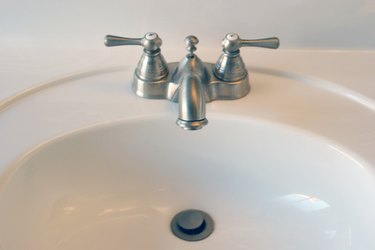
The choices available in fixture finishes is growing. Chrome is still a highly popular choice, but brushed nickel and oil-rubbed bronze have gained favor. These two finish choices are not trendy, they make a statement about the homeowner and the home, adding style and sophistication to any room.
History
Video of the Day
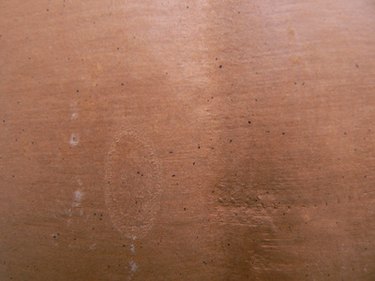
Bringing water into a dwelling from the outside has been in existence since earliest times. The oldest to be discovered dates to 1700 BC, when terra-cotta piping was used on the isle of Crete. From 1000 BC to 476 AD, the Roman public baths used silver faucets. Nickel was the preferred finish from the 1880s until 1930, when chrome was introduced. Nickel was susceptible to tarnish and was hard to maintain without a protective coating. Early in the 21st century, many finishes, including brushed nickel and oil-rubbed bronze, are available and being used for everything from ceiling fans to plumbing fixtures to switch plates.
Video of the Day
Oil-rubbed Bronze
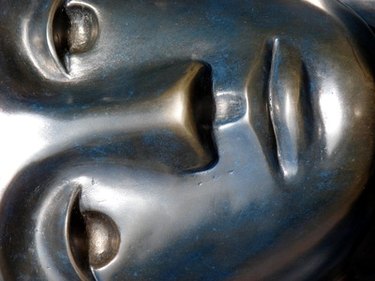
Bronze is an alloy of copper and tin. Copper was one of the earliest metals that man was able to work with. During the Bronze Age, man made great strides in tool manufacturing, as bronze was easier to work with than copper and was harder when cooled. Oil-rubbed bronze is a cast bronze product, which is hand-rubbed with oil, as the name implies, to give bronze a warm and inviting finish. It's available in a light or dark finish and provides a patina of an opaque brown color. The flat finish hides fingerprints while giving the look of a distressed finish. Bronze is a weather-resistant alloy that requires little care.
Brushed Nickel
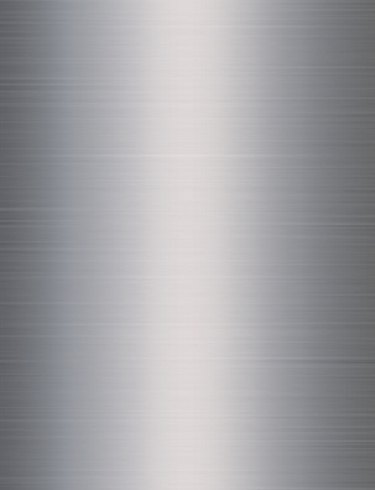
Nickel was discovered in 1751. It is rarely used in its pure form, and is often mixed with copper and zinc. It is resistant to corrosion and tarnish, if properly protected. Nickel that has been brushed produces a matte finish that hides scratches, fingerprints and water spots.
Benefits
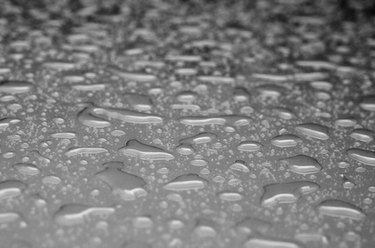
Oil-rubbed bronze and brushed nickel have a distinct advantage over chrome, because they resist water spots, fingerprints and scratches. They are low-maintenance, corrosion-resistant fixtures that add an element of beauty to any room in the home.
Cost
The cost of oil-rubbed bronze, brushed nickel and chrome are very much the same. Chrome is available in a builder-grade style, as of July 2010, ranging from $25 to $49 for a bathroom sink faucet, but most better-grade styles cost about $165. A similar faucet in oil-rubbed bronze is $138. In brushed nickel, it's about $159.